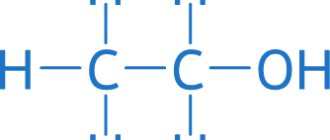1.What is food poisoning and its symptoms?
Food poisoning
is a disease caused by consuming foods containing
harmful microorganisms
.
These could be bacteria, viruses, parasites
. They are most often found in raw meat, chicken and eggs, but can be found in any other foods. In addition, dangerous microorganisms can accumulate in products stored on store shelves and outdoors, as well as on products that have been stored for too long before being consumed.
Most cases of food poisoning
It is relatively easy to tolerate and goes away on its own within a few days. During this time, harmful substances are removed from the body. But some types of food poisoning can be very serious and require consultation with a good physician.
Symptoms of poisoning
The first sign of poisoning
usually is
diarrhea
. In addition, abdominal pain, vomiting and stomach cramps may occur. Some food poisoning can cause high fever and blood in the stool. Symptoms of poisoning largely depend on the general health of the person and what microorganism caused the poisoning.
If vomiting and diarrhea
very strong,
dehydration
- loss of a large amount of body fluid. Signs of dehydration include dry mouth, dizziness, decreased urine output, and dark urine. In children and older adults, dehydration can occur very quickly. Poisoning and dehydration are especially dangerous for pregnant women, so if you suspect poisoning, they should definitely consult a doctor.
A must read! Help with treatment and hospitalization!
Involuntary treatment: is it possible?
As already mentioned, it is impossible to forcibly take an alcoholic to a clinic. But such a possibility is allowed in exceptional situations. The law on compulsory treatment provides some opportunities to help a patient in the acute stage of the disease.
You can detoxify at home, but this requires the desire and consent of the alcoholic. Unfortunately, it does not always make sense to rely on the consciousness of an addicted person - he does not see any problem in his addiction, and continues to live the way that is convenient for him. Quite quickly the disease becomes chronic. The more an alcoholic sinks into addiction, the more difficult it is to treat him and get rid of all the consequences of abuse.
It is very important to find a way as early as possible and think through all the steps for compulsory treatment. The grounds for hospitalization without free will consent are exceptional circumstances; if they exist, the legislation allows sending a patient to a hospital without free will.
How to send for compulsory treatment? Circumstances that may become grounds for hospitalization without consent are :
- Suicidal tendencies : if there is a suicide attempt - one or more, or a clear tendency towards suicide, we can talk about the right of loved ones to organize hospitalization.
- Danger to society : the patient shows aggression towards loved ones and others, the behavior is inappropriate, one can say that the actions can be potentially dangerous for others, the alcoholic does not control himself.
- Inability to be responsible for one’s actions : the patient’s actions are not necessarily dangerous to others, but may pose a potential danger to himself, low self-control, in which case urgent medical attention is needed.
- Criminal activity : the addict commits illegal acts while intoxicated. If a person who regularly drinks alcohol commits an offense, this is sufficient grounds for hospitalization.
note
There are medications that can be bought in pharmacies without a prescription. They are allowed to be given to the patient without his consent or knowledge in order to create conditions for treatment.
We must not forget that to successfully return to normal life without alcohol, motivation is necessary. To do this, the patient must realize that he needs treatment and convince him that addiction is a problem. Treatment for addiction takes more than one day - it is a rather long process, and the patient does not always have breakdowns. Long-term treatment and recovery require support. Radical methods are required during the treatment of women, since in their case the process is more complex than in men. Relatives need the help of modern narcologists who will organize a full course of treatment. Simple counseling is most often not enough.
2.How can harmful microbes get into food?
- During meat processing. There are bacteria in the intestines of animals that humans use as food. This is normal, but sometimes bacteria also get on those parts of animals (meat) that we eat.
- Because of the water that is used to water or wash fruits and vegetables. If there are microbes in this water (most often these are microbes from animal manure and household wastewater), they can transfer to the food.
- While cooking. If items that have germs on them come into contact with food, the germs can be transferred to them. For example, if you use the same cutting board to cut vegetables and raw meat, germs can transfer to the vegetables. The same thing happens if you don’t wash your hands well after cutting meat.
Visit our Therapy page
Signs of drug poisoning depending on the type of drug
An “overdose” provoked by a certain group of “drugs” is characterized by the appearance of its own specific symptoms:
- An overdose of hallucinogens leads to impaired coordination of movements, tachycardia and increased heart rate.
- Cocaine poisoning can be determined by general malaise, a sharp increase in temperature, enlarged pupils, and the appearance of “glitches.”
- An “overdose” of cannabinoids, “weed,” is accompanied by dilated pupils, increased dryness in the mouth, increased heart rate, and sudden mood swings.
- An overdose of “salts” is characterized by a sharp pallor of the skin, dizziness, impaired coordination of movements, breakthrough vomiting, and loss of consciousness.
- Poisoning with opiates is characterized by shallow breathing, a decrease in temperature to 36° and below, constriction of the pupils to the point of a point, severe itching of the skin, and speech disorders.
- An “overdose” of antidepressants causes drowsiness, which is directly related to the inhibition of brain function by toxins. This condition is extremely dangerous, because may smoothly transition into a coma.
- An overdose of sleeping pills is accompanied by constriction and then dilation of the pupils, shallow breathing and coma, provoked by the appearance of serious disorders in the central nervous system. Some people who take an excessive dose of sleeping pills may develop acute kidney failure.
Any person should know these signs, even if there is no drug addiction problem in his family or among close friends. Such knowledge can help save the life of a stranger in distress.
3.How do you know if you have food poisoning?
Since most poisonings are quite easily tolerated, people do not always turn to doctors about this. Usually the assumption of food poisoning is made if people who eat the same food get sick at the same time.
If the symptoms of poisoning are severe enough - there is severe vomiting or diarrhea
, or your health condition does not improve within a few days, it is better to consult a doctor. The doctor will be able to accurately determine the cause of the illness and say whether it is really poisoning. You may need to do blood and stool tests for an accurate diagnosis.
About our clinic Chistye Prudy metro station Medintercom page!
Drug treatment clinic: how to call an ambulance?
The rehabilitation center, which helps the patient return to normal life, uses a wide range of treatment methods. The process consists of various stages, focusing not only on addiction, but also on its impact on the psyche and internal organs. Treatment must be comprehensive.
It is very important: decide where exactly you will send the patient for treatment, and responsibly choose a specialized center.
The work at the center is carried out by a staff of professional doctors and psychologists who work with the patient and his relatives. The main task is to convince the patient to stop drinking and begin intensive treatment. Only the joint response of specialists and loved ones will help the patient make the important decision to give up alcoholic beverages.
4. Treatment and prevention
Treatment of poisoning
In most cases, food poisoning goes away on its own within two to three days. All you need to do is rest and drink more fluids
to prevent dehydration. You need to drink a cup of water or a special rehydration drink (it helps restore water-salt balance) with every large loose stool. Juices and other fruit drinks contain too much sugar and are not suitable for rehydration. In addition, doctors recommend starting to eat normally as soon as possible. As soon as eating stops causing you to vomit, you should try eating some of the food you usually eat. But you should avoid foods that are too fatty and too sweet.
Antibiotics are generally not used to treat food poisoning. Medicines may be prescribed to help stop diarrhea, but they are not recommended for young children. In addition, they should not be taken by adults if poisoning is accompanied by high fever and blood in the stool, because the condition may only worsen.
Severe dehydration, as well as severe poisoning (for example, botulism and intestinal infections), may require emergency medical attention and hospital treatment.
Prevention of poisoning
In most cases, these simple recommendations help prevent poisoning:
- Keep clean
. Wash your hands before preparing food, wash knives, cutting boards, and fresh vegetables and fruits well in hot water and detergent. - Separate foods
- do not store raw meat and other foods next to each other. Do not use the same dishes and cutlery for raw and cooked meat products. - Make sure that meat, chicken, fish, eggs are fully cooked
. - Put food in the refrigerator immediately
. Do not leave cut fruits and vegetables at room temperature for long periods of time. - If you doubt the quality of the product, throw it away. If you are not sure about the safety of food, do not eat it.
When to call an ambulance?
Do you know or guess what exactly could cause an upset stomach? Then try to give yourself first aid: empty your stomach and start taking absorbent substances. If these measures do not produce an effect within 3-12 hours, or the symptoms begin to progress, you need to call an ambulance.
It is also necessary to call an ambulance if a person has:
- constant vomiting;
- fever;
- weakness;
- high body temperature (especially if it rises sharply to 40C);
- diarrhea more than 8-10 times a day - possibly with blood in the stool.
But in general! If you eat right, exercise, lead an active lifestyle and regularly undergo examinations by a professional gastroenterologist, then you are not at risk of food poisoning. You can handle the first three points on your own, but we will help you with the last one. Qualified doctors at the ACMD-MEDOX clinic are ready to examine you. And prescribe treatment if required.
You can make an appointment at ACMD-MEDOX by phone, ordering a call back, or through a special button (in the upper right corner of the site). Be healthy!
basic information
· Tricyclic antidepressants (TCAs) are a group of drugs that can cause fatal poisoning and are among the most commonly used medications for suicidal intent.
· Mortality after TCA overdose occurs in 2-5% of poisoned patients.
· Poisoning results from ingestion of tricyclic antidepressants in a toxic dose, usually more than 1 g.
· Use of <10 mg/kg usually results in mild poisoning, while use of >15-20 mg/kg poses a risk of serious poisoning.
· The main tricyclic antidepressants include: amitriptyline, doxepin, nortriptyline, klomipramin, maprotiline.
Content
- Types of food poisoning
- Signs and symptoms in children
- Causes of food poisoning in children
- What should you do if you are poisoned?
- Peculiarities of child nutrition after treatment
- Disease prevention
Food poisoning is a complex of painful symptoms that occur when the body is affected by poisonous and low-quality products of animal or plant origin. Toxins can enter in different ways: through the intestines, absorption through the mucous membrane of the nasopharynx, or inhalation. In children under one year of age, absorption and distribution throughout the body occurs faster. Source: H.D. Abdikhakimovich Features of the course of foodborne toxic infections // Pediatrician, 2021, v. 8, special issue
Poisoning in children is more common than in adults, and its course is much more complicated. This is explained by the peculiarity of the child’s still fragile body. In the early years, the intestinal microflora is not yet formed, toxins are quickly absorbed and spread through the blood, and low acidity of gastric juice is noted.
How to recognize acute alcohol poisoning?
Any, even mild intoxication is a set of symptoms of intoxication. A person begins to experience noise in the ears, vision and hearing are distorted, speech becomes confused, and thinking becomes difficult. Alcohol may cause nausea, shortness of breath, and problems with coordination of movements. All these manifestations are dangerous, but not critical. They are not life threatening.
Acute ethanol poisoning occurs differently:
- consciousness becomes cloudy, becomes confused: there is no orientation in time, the person does not understand where he is, cannot answer questions;
- vomiting - profuse, prolonged;
- the appearance of seizures, trembling of the arms or legs, and other neurological symptoms;
- the skin noticeably pales, becomes bluish, lips may turn blue;
- breathing - irregular or rare (the intervals between breaths are not equal, longer than 7-10 seconds);
- body temperature decreases (falls below 36.2°C).
Important: loss of consciousness, sudden falling asleep, in which the victim cannot be awakened, are dangerous in combination with symptoms of both mild intoxication and acute intoxication. You can’t wait for a person to “sleep it off”; it’s dangerous with death. You need to urgently call an ambulance.
Order alcoholism coding
Experienced doctors and narcologists. In hospital or at home. 24-hour service in Moscow and the region. Professional, anonymous, safe.
With a high concentration of ethanol in the blood, an alcoholic coma can develop:
- superficial - a person loses consciousness, does not respond to speech, but pupillary reflexes are partially preserved, muscle tone changes (becomes low or high);
- deep: the patient is unconscious, the pupils do not react to light, body temperature drops sharply, muscles relax, pain sensitivity is lost.
After recovery from a coma or relief of acute symptoms, complications may develop:
- visual and auditory hallucinations, psychomotor agitation;
- increased convulsive syndrome;
- alcoholic delirium;
- complete or partial loss of vision (temporary);
- disorders of the respiratory system.
If there is a risk of complications after detoxification, the patient is left in the hospital to monitor his condition.
If there is a possibility of poisoning not only with ethanol, but also with other forms of alcohol, the victim needs emergency medical care, even if the symptoms are still mild. It can build up quickly. Methanol, ethylene glycol, and isopropyl alcohol, which are contained in technical fluids, lotions, household chemicals, etc., are especially dangerous. They can cause respiratory arrest, loss of vision, decreased blood pressure, vomiting (including blood), and coma.
Order alcoholism treatment
We work around the clock, experienced doctors, 100% anonymous.










